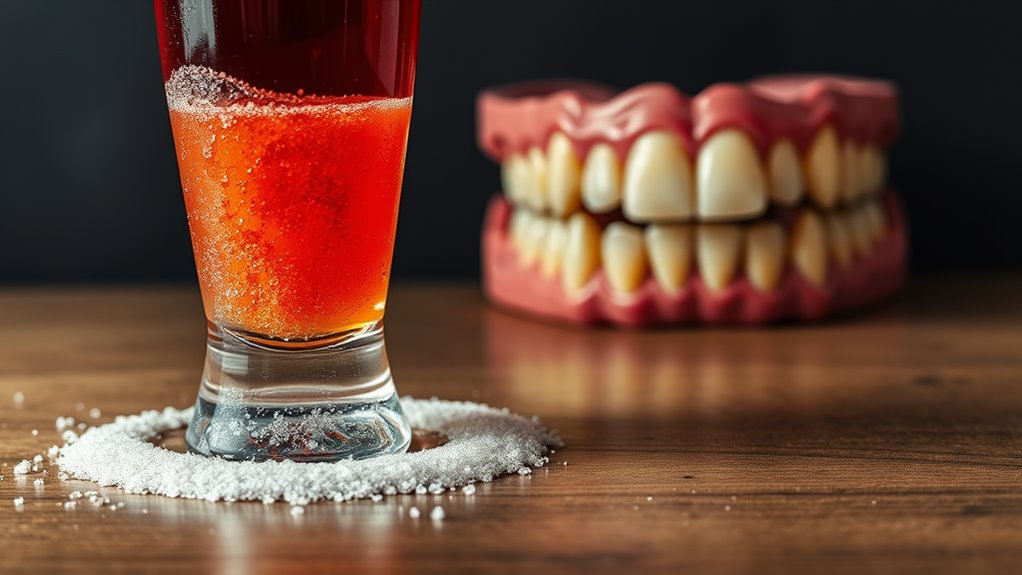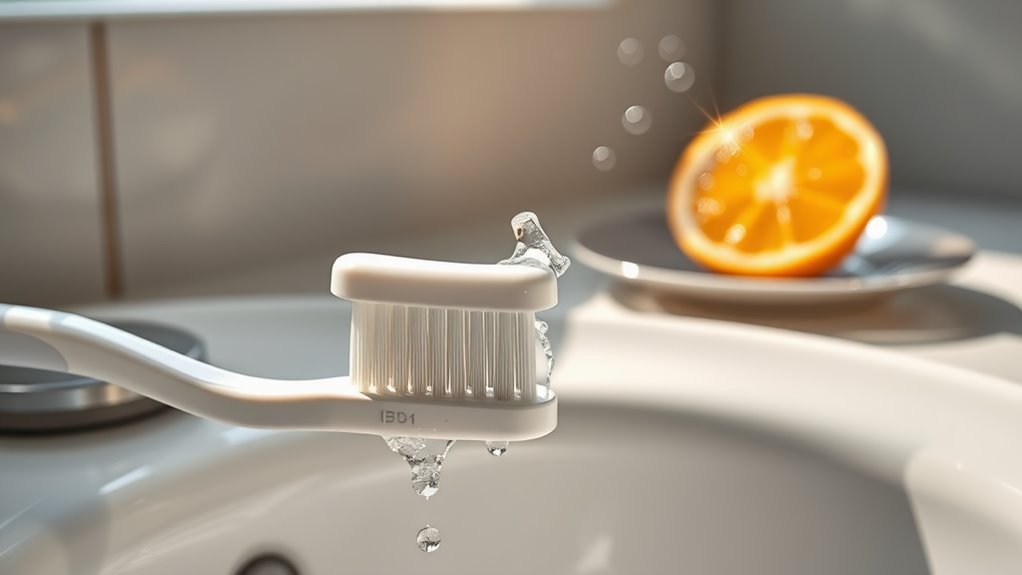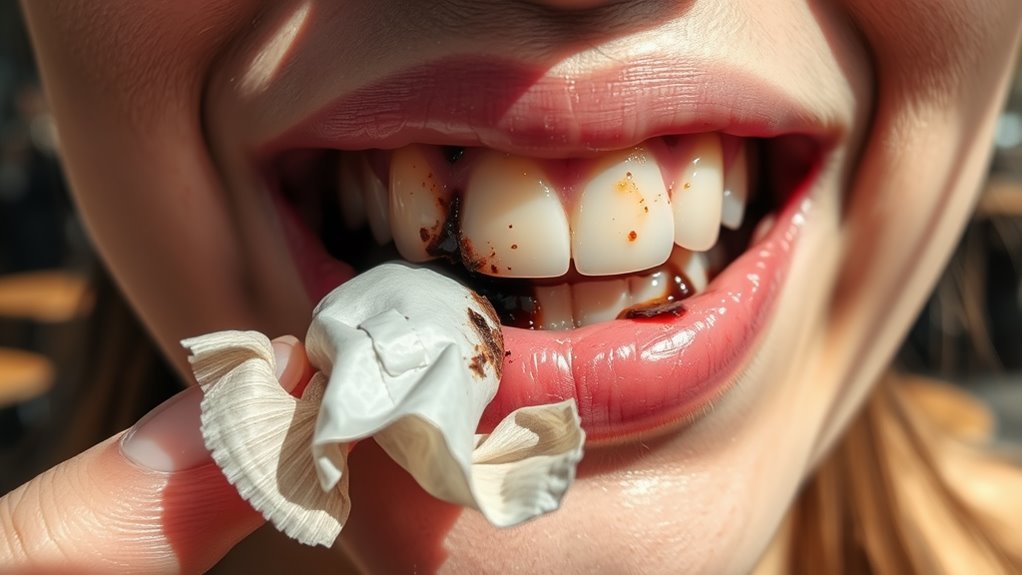Natural Ways to Make Your Teeth Stronger
Did you know that the health of your teeth is closely linked to your overall diet? Many people overlook the impact that nutrition has on dental strength. By understanding which foods to prioritize and incorporating simple daily habits, you can greatly improve your oral health. This involves more than just brushing and flossing; you’ll want to explore how specific nutrients and practical remedies can contribute to a stronger smile.
Maintain a Balanced Diet
As you endeavor to strengthen your teeth, maintaining a balanced diet is vital.
Incorporate calcium-rich foods, like dairy or leafy greens, which fortify enamel. Vitamin D is important for calcium absorption, so include sources like fish and fortified products. Additionally, the inclusion of nutrient-rich greens contributes significantly to gum health and reduces inflammation.
Limit sugary snacks and drinks, as they can lead to decay. Following these teeth strength tips guarantees your dental health remains ideal and resilient.
Stay Hydrated
Hydration plays a significant role in maintaining strong teeth and overall oral health. Staying hydrated helps your body produce saliva, which protects your teeth.
To guarantee proper hydration, consider these tips:
- Drink water regularly throughout the day.
- Avoid sugary beverages.
- Consume water-rich foods like fruits and vegetables.
- Limit caffeine and alcohol intake.
- Carry a refillable water bottle for convenience.
Additionally, staying hydrated supports saliva production, which helps neutralize acids that can harm your teeth.
Stay proactive about your hydration!
Incorporate Calcium and Vitamin D
To strengthen your teeth, incorporating calcium and Vitamin D into your diet is essential. Calcium-rich foods like dairy, leafy greens, and nuts provide the necessary minerals for tooth structure, while Vitamin D helps your body absorb calcium effectively. A balanced intake of these minerals ensures resilience against wear and tear, contributing to overall oral health. Aim for daily intake recommendations that support ideal oral health and overall wellness.
Importance of Calcium Foods
Calcium-rich foods play an essential role in maintaining strong teeth and overall dental health. Including these foods in your diet can support tooth enamel and prevent decay.
Focus on incorporating the following calcium sources:
- Milk and dairy products
- Leafy green vegetables
- Fortified plant-based milks
- Fish with bones, like sardines
- Almonds
These options also work best with Vitamin D for enhanced absorption.
Vitamin D Sources
How can you guarantee your body gets enough Vitamin D to support calcium absorption and strengthen your teeth?
Incorporate fatty fish like salmon or mackerel into your diet, and consider fortified foods such as dairy products and cereals.
Spending time outdoors allows your skin to synthesize Vitamin D through sunlight.
Additionally, supplements may help, especially in low-sunlight areas or during winter months.
Daily Intake Recommendations
While it’s important to prioritize your daily intake of calcium and Vitamin D, many people overlook the specific quantities needed for ideal dental health.
Aim for the following:
- 1,000 mg of calcium for adults
- 1,200 mg for women over 50
- 600-800 IU of Vitamin D for most adults
- Include fortified foods or supplements
- Consider regular sun exposure for Vitamin D synthesis
Utilize Natural Remedies
You can utilize several natural remedies to enhance your dental health effectively. Clove oil offers antimicrobial benefits, while aloe vera provides soothing properties for your gums. Additionally, incorporating green tea into your routine can strengthen teeth through its antioxidant content. Furthermore, using coconut oil can not only strengthen gums but also support overall oral health.
Clove Oil Benefits
Clove oil, known for its potent medicinal properties, offers several benefits for strengthening teeth and promoting oral health.
By incorporating clove oil into your dental routine, you can enjoy:
- Pain relief from toothaches
- Antimicrobial effects to reduce bacteria
- Anti-inflammatory properties to soothe gums
- Freshening breath
- Strengthening enamel through nutrient support
Consider clove oil as a natural ally for better oral hygiene.
Aloe Vera Use
Aloe vera has gained recognition not just for its soothing skin benefits but also for its remarkable contributions to oral health.
Using aloe vera as a mouthwash can help reduce plaque and fight bacteria.
You can also apply aloe vera gel directly to your gums to soothe irritation and inflammation.
Incorporating this natural remedy into your routine can promote stronger, healthier teeth.
Green Tea Advantages
While many may not realize it, green tea offers numerous advantages for dental health that can help strengthen your teeth naturally.
By incorporating green tea into your routine, you can:
- Reduce bacteria and plaque accumulation
- Decrease risk of cavities
- Strengthen enamel with antioxidants
- Freshen breath naturally
- Promote overall oral health
Making green tea a habit can greatly enhance your dental wellness.
Practice Good Oral Hygiene
Practicing good oral hygiene is essential for maintaining strong teeth and overall dental health.
Brush your teeth at least twice a day using fluoride toothpaste, and don’t forget to floss daily to remove plaque between your teeth.
Rinse with an antibacterial mouthwash to reduce bacteria.
Regular dental check-ups will help catch issues early, ensuring your teeth remain healthy and strong. Additionally, it’s important to replace your toothbrush every three to four months to maintain optimal cleaning efficacy and cavity protection.
Avoid Harmful Habits
To maintain strong teeth, it’s crucial to avoid harmful habits that can wreak havoc on your dental health. Consider eliminating or minimizing the following:
- Smoking or using tobacco products
- Frequent consumption of sugary snacks and drinks
- Nail-biting or chewing on hard objects
- Excessive teeth grinding (bruxism)
- Ignoring dental check-ups and cleanings
These changes can greatly enhance your dental strength and overall oral health. Additionally, being aware of how sugar fuels harmful bacteria can help you make better dietary choices to protect your teeth.




